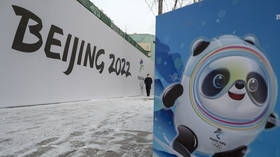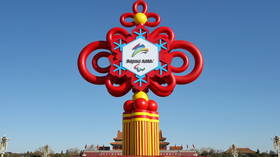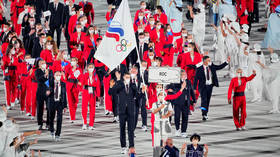Paralympic boss cites ‘influence of governments’ as Russians banned from Beijing

The International Paralympic Committee (IPC) has reversed a decision to allow Russian and Belarusian athletes to compete at the 2022 Beijing Winter Games, just one day after saying they could appear as neutrals.
The Games formally get underway on Friday, but the IPC said the “viability” of the event had been jeopardized by multiple teams, athletes and national Paralympic committees (NPCs) threatening boycotts if athletes from Russia and Belarus were free to compete.
“[The] situation in the athlete villages is escalating and ensuring the safety of athletes has become untenable,” the IPC said in its statement announcing the decision.
The move comes after the International Olympic Committee (IOC) recommended earlier this week that Russian and Belarusian athletes be banned from international events across all sports due to the conflict in Ukraine.
The IPC had initially resisted a full ban, announcing on Wednesday that competitors from the two nations could appear in Beijing but only as neutrals and without any reference to their respective countries or national symbols.
Any medals won by Russian and Belarusian athletes would not have been recorded in the official table.
The IPC has now reversed course after a “specially convened meeting” of its governing board.
“At the IPC we are very firm believers that sport and politics should not mix. However, by no fault of its own the war has now come to these Games and behind the scenes many governments are having an influence on our cherished event..,” said IPC president Andrew Parsons.
“What is clear is that the rapidly escalating situation has now put us in a unique and impossible position so close to the start of the Games.
“Yesterday we said we would continue to listen, and that is what we are doing.
“In the last 12 hours an overwhelming number of members have been in touch with us and been very open, for which I am grateful.
“They have told us that if we do not reconsider our decision, it is now likely to have grave consequences for the Beijing 2022 Paralympic Winter Games.
“Multiple NPCs, some of which have been contacted by their governments, teams and athletes, are threatening not to compete.
“Ensuring the safety and security of athletes is of paramount importance to us and the situation in the athlete villages is escalating and has now become untenable…
“With this in mind, and in order to preserve the integrity of these Games and the safety of all participants, we have decided to refuse the athlete entries from RPC [Russian Paralympic Committee] and NPC Belarus,” Parsons added.
Parsons apologized to Paralympic athletes from Russia and Belarus as he accused their leaders of “breaching the Olympic Truce” with the decision to launch a military offensive in Ukraine, which began last week.
Moscow launched its operation, partly using bases from Belarus, after formally recognizing the Donbass republics which were part of eastern Ukraine.
Russian President Vladimir Putin has said the aim is to protect the local population in those regions and to “demilitarize” and “de-Nazify” Ukraine itself.
As a result of the conflict, Russian and Belarusian athletes have faced a swathe of sanctions across various sports.
Russian officials and sporting bodies have reacted by calling the measures grossly unfair and tantamount to ethnic discrimination, and allowing politics to dictate sport.














